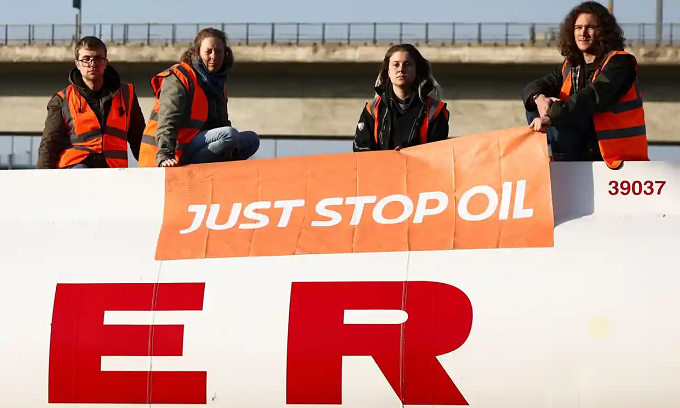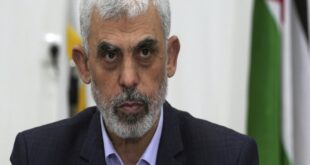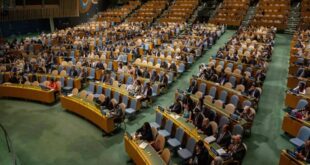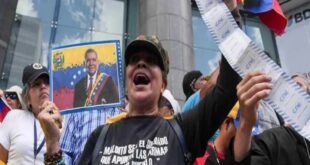
To avoid ‘youth-washing’ politicians and corporations, young people now are more likely to coalesce around radical policies or campaigns.
Between 2016 and 2020, children were the vital force at the centre of the climate movement. Youth strikers organised record-breaking mass mobilisations and protests between geography and double maths. In the US, young people from the Sunrise Movement occupied Nancy Pelosi’s office demanding climate action. Youth activists got extraordinary media attention, invitations to speak at climate summits, and to address the UN. Teenagers such as Vanessa Nakate and Greta Thunberg became household names; both of them appeared on the cover of Time magazine, the latter as person of the year in 2019.
This coincided with a moment in climate politics that was awash with ideas around children, the future, and intergenerational justice. Extinction Rebellion activists used the next generation as a proxy for the future: climate action in the present was a moral necessity for our children and grandchildren. Politicians also adopted this framing. At the same time, young people were taking matters into their own hands. For a time, it seemed that a climate movement was emerging in which children acted simultaneously as the spark, inspiration and energy. This wave seemed unstoppable.
But that moment has passed. Young people’s climate activism is rarely headline news any more and Thunberg has taken a step back from the movement spotlight. There are fewer older eco-warriors in the limelight talking about their grandchildren, and politicians seem to care less about photo-ops with young activists blocking roads.
Of course, youth organising has not simply disappeared – young people still populate much of the activist scene and movements such as Green New Deal Rising remain explicitly for under-35s. But media focus and activists themselves are placing less emphasis on age; it is often incidental, and less central to activists’ strategy.
The political terrain has changed since the age of the youth activist icon. The events of the past couple of years have thrown down challenges for climate organising more broadly: the pandemic was a major chiller for activism and came hot on the heels of the 2019 general election, the biggest Tory victory since 1987 and a crushing experience for the left and wider green movement.
But the climate movement is not just moving across a different political landscape; it has also taken a different form. There has been a critical repositioning in parts of the UK climate movement, recognising climate breakdown is not a future issue, but a devastating present reality for millions in the global south. And on the whole, young activists have grown out of organising along generational lines, instead moving into issue-oriented movements.
From the beginning, youth strikers were holding together a complex coalition of children, allied around their age and the tactic of striking, rather than an explicit political agenda. After sustaining impressive turnout at protests but achieving little political shift, UK organisers were burning out, as was the shock of the strikes.
This was compounded by the feeling that world leaders and corporations were “youth-washing” by co-opting child climate activists – inviting them on to platforms and into private meetings to burnish their own images but ignoring their demands. Despite the increase in representation on the world stage, importantly including indigenous young people and children from the global south, it’s hard to say how much world leaders took their voices into account. Children were seen, but their demands – from urging for financing for loss and damage, an end to the racist Home Office or an end to capitalism itself – were not heard. The UK Youth Climate Coalition was so frustrated with this co-optation it set up a campaign in 2019 to call out youth-washing.
Some adults were youth-washing to cover their problematic policies or business models, others to divest action on to a younger generation. Thunberg spoke out about it in her now-famous speech to the UN: “You all come to us young people for hope. How dare you? You have stolen my dreams and my childhood with your empty words.” Ultimately, what is lacking is real decision-making power for young people.
So now, instead of using youth as a rallying flag, young people across the country are building movements around radical policies or clear political campaigns. These are both harder to co-opt, and more coherent than the loose association of a movement based on age alone. Given the fragmented politics and the fleeting nature of childhood itself, building youth-led movements around strong campaign foundations – from Stop Jackdaw to Just Stop Oil – is proving more sustainable.
The climate movement still needs powerful ideas and metaphors that can unite big coalitions, but children are no longer its future. That focus was temporary, and besides kept attention off the millions for whom climate breakdown isn’t the future but the present. It’s a good thing that young activists are now viewed less as angelic saviours, and more as political actors in their own right.

By Eleanor Salter writes about climate, culture and politics – theguardian.com




 World Opinions Débats De Société, Questions, Opinions et Tribunes.. La Voix Des Sans-Voix | Alternative Média
World Opinions Débats De Société, Questions, Opinions et Tribunes.. La Voix Des Sans-Voix | Alternative Média




